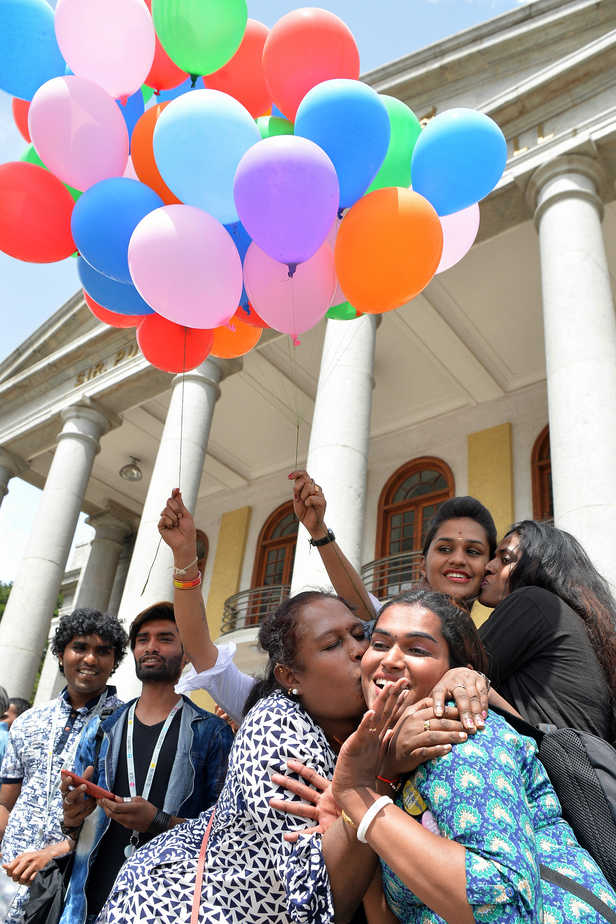The scrapping of Section 377 is a huge victory for the LGBTQA+ community. their voices have been heard
On Thursday morning, India woke up to one of the most historic, pragmatic verdicts the country’s apex court ever passed. A five-judge bench of the Supreme Court headed by Chief Justice Dipak Misra unanimously struck down the archaic Section 377 of the Indian Penal Code which criminalised consensual homosexual sex.
Section 377 was a law that had been contested, debated, and largely resented for longer more than a decade in India—but all of that changed as of Thursday morning. Mammoth crowds had gathered outside the Supreme Court in Delhi in anticipation of the ruling, all of them chanting, waving the Pride flag, and waiting for the judges to repeal the 156-year-old law.
At about 11:30 am, amid cheers, hurrays, and an endless rainbow-coloured Mexican wave sweeping through the crowd, the apex court finally did away with the notorious Section 377 of the IPC.
All the years of waiting, protesting, and rallying, seems to have finally paid off for the community, and Thursday’s judgment is a step forward not only for the Pride community in India but for the entire country as a whole.
“It’s finally over—I feel like I’ve been waiting more than half my life for something like this,” said Sohini, an undergraduate Political Science student. She identifies as a proud lesbian and has always been vocal about her choices.
Many others like Sohini were also expecting the worst, and having to constantly face opposition for a basic freedom, had become a habit. “I feel so good…like I’m finally being acknowledged,” said a smiling Sohini.
Ramya, a PR executive based out of Bangalore, was attending an event for work on Thursday when she found out about the section being scrapped. She nearly cried upon hearing the news. “I cannot change what people think about my choices, but for the first time, I’m not drowning in fear. This time, the law is on my side”, she said.
Abhi (name changed), a closeted homosexual, who usually shies away from talking about his sexuality, said that he feels like he now owes it to the country to come out of the closet. “Of course, it will have to be rehearsed and planned meticulously. But I will do it soon. I have to—now more than ever… I mean, how dare I not take advantage of this, to at least honour all those people who had to go through all the nuisance before me?”
September 6, 2018, is a date that will go down in the Indian history books as the day that homosexual sex was finally—finally—decriminalised. A bench of five judges unanimously (and partially) struck down the archaic law retained from the British regime. The law still retains the illegality of bestiality (sexual intercourse with an animal) and non-consensual sexual acts.
Social media has been blowing up and excitement is running high throughout the country, being trumped only by the emotion of hope that can be clearly seen as the massive crowds awaiting the judgement broke down in tears, hugging each other as the ruling came in their favour. Hope—that is the legal stamp which will aid in wiping out discrimination on the basis of sexuality. This is a wake-up call for the bigotry that was reigning for so long, but more importantly, now there is a profound sense of freedom prevailing in the air—one that is very much a welcoming byproduct of this ruling.
For full story see www.patriot.in





